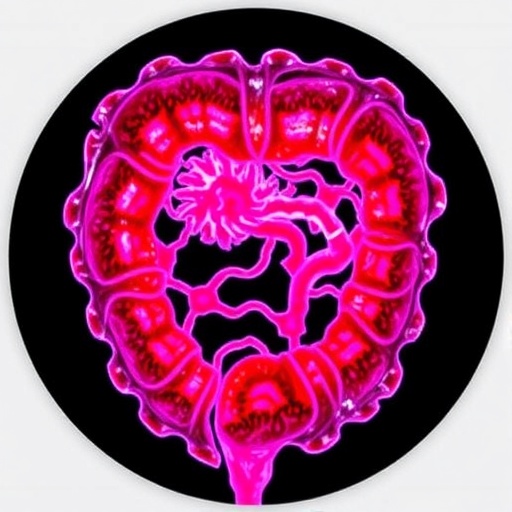
In recent years, the field of cancer research has witnessed remarkable advancements in modeling tumor biology through three-dimensional cellular systems known as organoids. These miniature, organ-like cultures derived from patient tissues or stem cells offer unprecedented opportunities to recapitulate complex tumor microenvironments in vitro. A groundbreaking study published in Cell Research by Wu, Kim, and Smith pushes these boundaries further by introducing a novel organoid culture condition that models fetal-like plasticity in colorectal cancer. This pioneering work not only challenges traditional paradigms but also opens a transformative avenue in understanding cancer cell dynamics and therapeutic resistance.
Colorectal cancer (CRC) is among the leading causes of cancer-related death worldwide, with metastasis and therapeutic resistance posing significant obstacles to long-term survival. Conventional cancer models, including two-dimensional cultures and xenografts, have proven limited in accurately reflecting tumor heterogeneity and plasticity. Organoid systems have emerged as the most advanced platform, enabling researchers to capture the self-organizing and differentiation potential of cancer cells within a physiologically relevant extracellular matrix. However, existing organoid culture techniques still fall short of mimicking the developmental plasticity observed during tumor progression.
The novel culture condition described by Wu and colleagues ingeniously capitalizes on insights from developmental biology and stem cell research. By manipulating growth factors and extracellular signals, the researchers induced a fetal-like state within colorectal cancer organoids. This state is characterized by enhanced cellular plasticity reminiscent of fetal intestinal epithelium, conferring tumor cells an elevated capacity for lineage switching, migratory potential, and resistance to targeted therapies. This paradigm-shifting approach represents a conceptual leap from mimicking adult tissue architecture to recapitulating embryonic-like phenotypic flexibility.
Critically, the study elucidates the molecular underpinnings governing this reprogrammed state. Transcriptomic analyses reveal that fetal-like organoids display upregulation of developmental pathways including Wnt/β-catenin, Notch, and Hippo signaling axes, which are tightly regulated during embryogenesis but aberrantly co-opted by cancer cells. Furthermore, epigenetic remodeling appears to play a pivotal role, as key histone modifications and chromatin accessibility landscapes in these organoids mirror fetal tissue profiles rather than mature tumors. These findings suggest that therapeutic inhibition of these developmental networks could disrupt tumor plasticity and improve clinical outcomes.
Beyond molecular characterization, the authors validate the functional consequences of their culture system through comprehensive phenotypic assays. Fetal-like organoids demonstrate increased invasiveness in extracellular matrix assays, higher clonogenic potential, and resistance to conventional chemotherapeutic agents such as 5-fluorouracil and oxaliplatin. Of particular note, this plasticity endows cancer cells with the ability to evade therapeutic pressures by transitioning between cellular states, thereby underscoring the clinical relevance of targeting fetal-like reprogramming.
Importantly, this research introduces an adaptable platform for preclinical drug screening tailored to fetal-like tumor states. By integrating patient-derived CRC tissues into the novel culture condition, the authors generate personalized organoids exhibiting this plastic phenotype, enabling drug efficacy testing that accounts for tumor heterogeneity and adaptive resistance. This approach holds promise for accelerating precision oncology strategies that pre-emptively combat tumor evolution and relapse.
The implications of modeling fetal-like plasticity extend beyond colorectal cancer. Similar phenotypic adaptations are reported in other solid tumors, including pancreatic, breast, and lung cancers. As such, the principles established by Wu et al. could catalyze cross-disciplinary research into tumor plasticity mechanisms and foster the development of broad-spectrum therapeutics aimed at hijacking developmental programs usurped by aggressive malignancies.
Technically, the culture system employs a concoction of defined growth factors, including fibroblast growth factor (FGF) family members and transforming growth factor-beta (TGF-β) modulators, finely tuned to recapitulate the fetal intestine niche. This biochemical milieu orchestrates stem cell niche dynamics and epithelial-mesenchymal interactions that are crucial for fetal-like state maintenance. The extracellular matrix composition is also meticulously optimized to balance rigidity and signaling cue presentation, as matrix stiffness influences cell fate decisions and tissue architecture.
From a translational standpoint, the study emphasizes the necessity of dynamic culture environments that simulate the temporal progression of tumor plasticity. Unlike static conventional cultures, this novel condition supports reversible transitions between differentiated and progenitor-like phenotypes, thereby modeling intratumoral heterogeneity more faithfully. This feature is pivotal for dissecting the complex cell state hierarchies underlying metastasis and drug resistance.
Moreover, the authors employ cutting-edge single-cell RNA sequencing and multiplex immunofluorescence imaging to profile the cellular composition of fetal-like organoids at high resolution. These technologies unveil diverse subpopulations within the organoids, including transient amplifying cells, secretory progenitors, and rare stem-like cells. The spatial organization and lineage relationships mapped by these techniques illuminate the cellular circuitry driving plasticity and tumor progression.
The study also confronts the challenge of recapitulating microenvironmental influences by integrating mesenchymal and immune components in co-culture with the organoids. Such multicellular modeling enhances the fidelity of the system by reflecting paracrine signaling and immune surveillance dynamics critical to tumor evolution. This complexity ensures that the fetal-like plasticity observed is not an artifact but a genuine tumor-intrinsic property.
Importantly, Wu and colleagues provide a comprehensive bioinformatic pipeline for analyzing fetal-like state gene signatures, facilitating reproducibility and cross-study comparisons. This resource enables the broader scientific community to identify fetal-like plasticity markers in diverse cancer datasets, promoting biomarker discovery and therapeutic target validation.
As the field progresses, harnessing the power of fetal-like organoids may revolutionize drug discovery pipelines. High-throughput screening using these models could uncover compounds that selectively impair plastic states or reprogram aggressive cancer cells toward terminal differentiation. Such strategies might reduce tumor adaptability and enhance response durability in patients.
In conclusion, the innovative organoid culture condition pioneered by Wu, Kim, and Smith offers an unprecedented window into the fetal-like plasticity of colorectal cancer. By bridging developmental biology with cancer modeling, this work provides a robust platform to interrogate tumor heterogeneity, adaptive resistance, and potential therapeutic vulnerabilities. As the oncology community grapples with evolving drug resistance and disease relapse, harnessing fetal-like plasticity modeling stands as an exciting frontier with profound clinical promise.
Subject of Research: Colorectal cancer plasticity modeled through novel organoid culture conditions
Article Title: Novel organoid culture condition: modeling fetal-like plasticity in colorectal cancer
Article References:
Wu, C., Kim, M.J. & Smith, J.J. Novel organoid culture condition: modeling fetal-like plasticity in colorectal cancer. Cell Res (2025). https://doi.org/10.1038/s41422-025-01170-z
Image Credits: AI Generated
Tags: cancer research advancementscolorectal cancer modeling techniquesdevelopmental biology in cancer researchfetal-like colorectal cancerinnovative cancer research methodologiesorganoid culture modelspatient-derived organoid culturesplasticity in cancer cellstherapeutic resistance in cancerthree-dimensional cellular systemstumor heterogeneity studiestumor microenvironments in vitro



